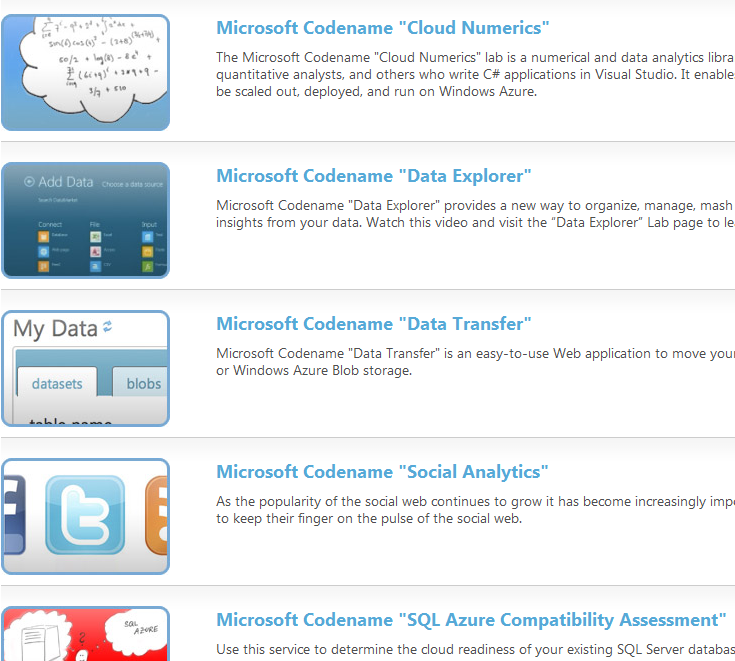Checking in on the Microsoft Labs

For a while -- in the 2007 to 2009 period, give or take, Labs were all the rage at Microsoft.

Since their founding, many of these labs have quietly (or not so quietly) fallen by the wayside. Some were morphed into other, newer labs or, occasionally, a product team. A few of the original group of Microsoft Labs remain, shells of their former selves, with almost no active projects left. But at the same time, a few newer labs have sprung up, like FUSE Labs, the Garage and the surprisingly active SQL Azure Labs. (More on them later in this post.)
Office Labs, which used to be one of the more active and closely followed of the Microsoft Labs, seems to be in a lull -- though apparently not completely dead.
When I asked what was going on with Office Labs, I received this statement from a spokesperson:
"The mission of Office Labs remains the same and we are continuing to work collaboratively across the team and the company on productivity innovation. In addition to envisioning the future vision videos, the team is focused on an array of projects ranging from the prototyping of concepts, to longer-term incubations.
"It’s important to note that while many of our projects in the past have been shared externally there are also times where our focus shifts towards internal audiences and our projects aren’t publicly disclosed. This doesn’t reflect a change in mission or the suggest the pace of the team has changed, it just reflects the nature of the things we’re working on at the moment."
I see the formerly dedicated Office Labs page has been moved to the Office.com site. Three projects which are listed as "Past Projects" -- Ribbon Hero 2, pptPlex and Search Commands are still there, but the main purpose of the page seems to be to highlight Microsoft's Office Future Vision video.
On the other hand, SQL Azure Labs -- in spite of having one of the most boring sets of codenames at Microsoft -- seems to have the greatest number of active projects at this point. On the list: Cloud Numerics, Data Explorer, Data Transfer, Social Analytics (which did have the more fun "Vancouver" codename at one point), Compatibility Assessment, Security Services and Trust Services. All of these projects currently are available to testers.
But don't get your hopes up about any of these new capabilities, at least in their current form, being on a guaranteed fast track to debuting in Microsoft's SQL Azure cloud service. According to a note on the SQL Azure Labs page, "Labs is a place where we test concept ideas and prototypes. The projects in labs are experiments with no current plans to be included in a product and are not production quality." (Does "no current plans" mean no way, no how, never? My bet is at least some of these capabilities could be repurposed and end up in SQL Azure some day, in spite of the warning.)
Last year, at the SharePoint Saturday Conference, a Microsoft official shared some interesting slides about how the Labs fit into Microsoft's innovation vision. While products/technologies in Microsoft Research are anywhere from five to 10 years from commercialization (if they are deemed as having commercial possibility), once a technology hits one of the Microsoft Labs, it is about two to four years away from commercialization, that official said.
Given the limbo status of many of Microsoft's Labs, I'm wondering what the new thinking is here in terms of how Microsoft speeds up its commercialization of experimental technologies....